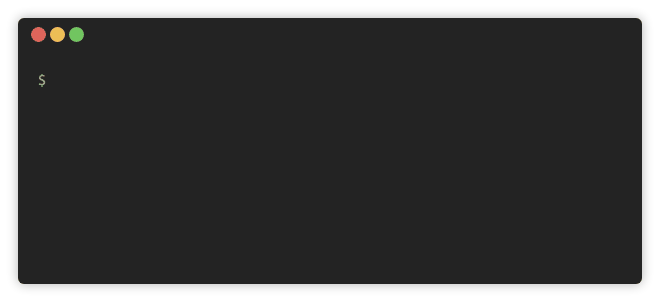A wrapper around apt and apt-get that enforces package install determinism. Inspired by package-lock.json from npm.
apt-lock apt-get install yourpackage
The first run will produce
apt-lock.jsonwhich contains all the installed packages (including dependencies) and their versions and hashes. Subsequent runs will loadapt-lock.jsonand append the version string to each package, e.g.yourpackage:amd64=1.2.3. Post installation, apt-lock will gather all the dependencies of the installed packages and verify their hash against the first run installation.
--silent:
Suppress output specifically from apt-lock.
--lock=./apt-lock.json:
If you run installs over multiple commands, then you should produce a separate lock file for each:
apt-lock --lock=./apt-lock-net.json apt-get install net-tools wget curl
apt-lock --lock=./apt-lock-script.json apt-get install python lua5.3
Any extra arguments will be transparently passed through, such as --yes, --no-install-recommends, etc.
FROM ubuntu:bionic-20190424
# Alternatively install wget or curl to download it or include it in the docker build context.
ADD https://github.com/TrevorSundberg/apt-lock/releases/download/v1.0.1/apt-lock-linux-x64 /usr/local/bin/apt-lock
RUN chmod +x /usr/local/bin/apt-lock
# We need the apt-lock.json from our build context.
COPY apt-lock.json .
RUN apt-get update && \
apt-lock apt-get install -y --no-install-recommends \
g++ \
gcc \
libc6-dev \
make && \
rm -rf /var/lib/apt/lists/*
RUN rm /usr/local/bin/apt-lockIf the apt-lock.json does not exist yet, then the docker COPY will fail. In that case we create an empty file:
touch apt-lock.json
When we build our image, make sure that apt-lock.json in the build directory (the docker build context):
docker build -t yourimage .
To ensure that the apt-lock.json file persists between runs if anything changes, we need to copy it out of the container after building. To do this we create a temporary container and utilize cat as our entrypoint:
docker run --rm --entrypoint cat yourimage /apt-lock.json > ./apt-lock.json
Now if you run build the image again:
docker build -t yourimage .
You should see apt-lock installing specific deterministic versions that it read from the last install:
apt-lock: Installing package 'g++:amd64=4:7.3.0-3ubuntu2.1'
Note that running apt-get update no longer breaks determinism because the apt-lock.json will be preserved between runs. If you delete apt-lock.json, it will be as if you did a brand new updated installation.
- Currently skips checking for packages whose version or architecture were manually specified.
- Many command line parameters that affect the installations are not tested (e.g.
-s,--print-uris).
- Get it working with alpine's
apkso we can use it in alpine docker images. - Rewrite in C, C++, or shell to make it considerably smaller.
